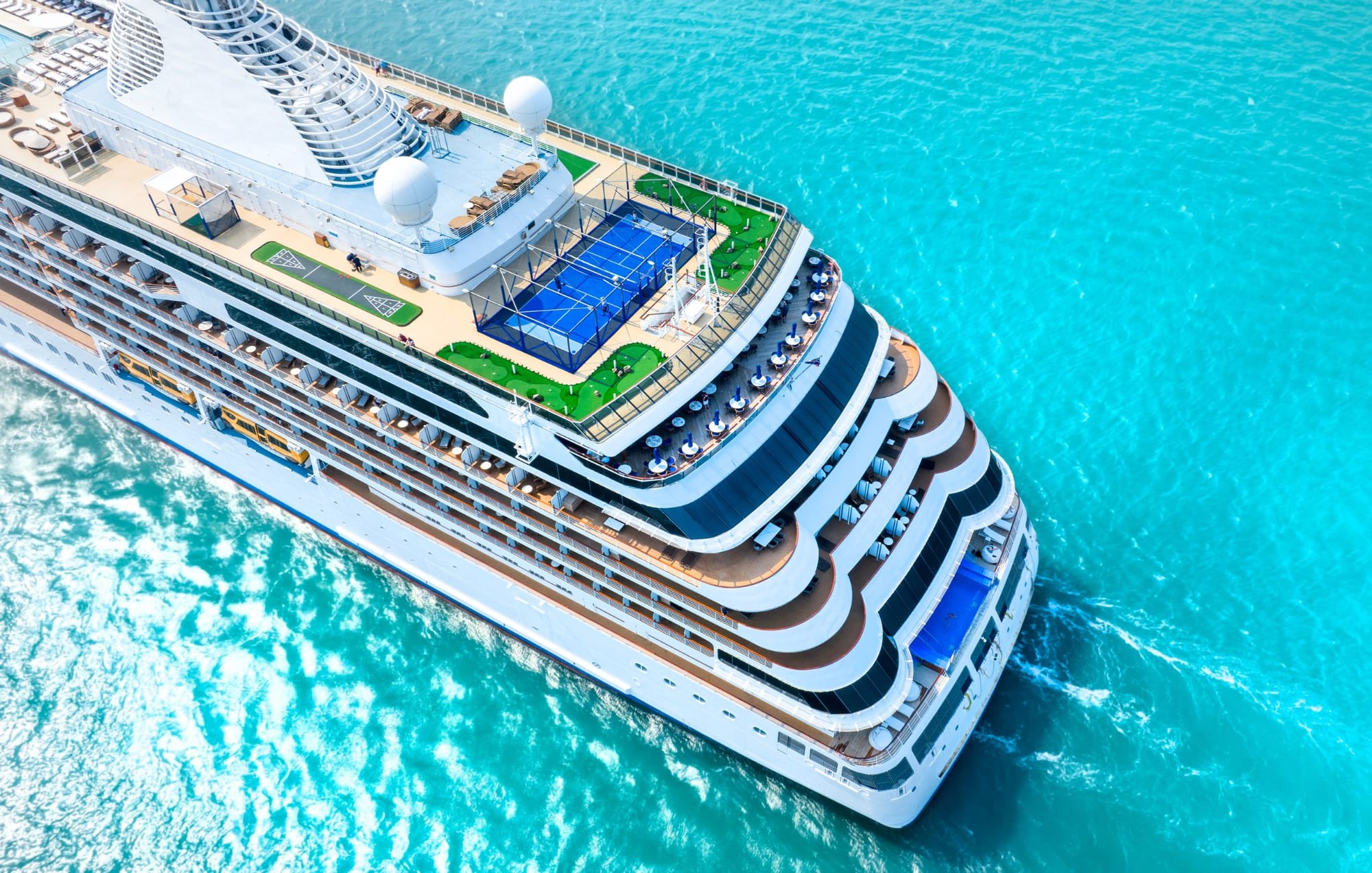Sustainability: The new black in the holiday cruise industry
Actively keeping guests informed, educated and involved in sustainability efforts and sensitising tourists to contribute towards reducing their carbon footprint could be immediate interventions.

Sustainability in the cruise industry starts right from the design and then goes into the technology, solid waste management, type of fuel used etc. And different cruise liners are on different sustainability journeys as the industry gets back to hit pre-pandemic levels of 30 million travellers
This article was first published in BusinessWorld.
Yearly, tourists and holiday goers all over the world look for alternative paths to having the best experiences and value for their money. Cruise ships are the tourists' dream of luxury entertainment. Shipping contributes 3 per cent of the carbon footprint and cruise is just a small part of it. The travellers are affluent and aware of the impact on the climate of the cruise liners. They are floating hotels that use up in days that can be utilised for a year by an individual. According to a study, a large cruise ship which can have anywhere between 5000 to 8000 people on board can have a carbon footprint greater than 12,000 cars. It produces over a ton of waste every single day.
When a ship stops at any destination, its emissions impact the local environment. And when there are several cruises stopping at any single luxury destination, the local environmental impact becomes significant. With the climate crisis, the role of cruise liners has been a hot topic of debate. The good news is that the industry is working towards making cruise liners more sustainable. The Cruise Lines International Association (CLIA) has committed to net-zero carbon cruising by 2050. The cruise line business has one of the biggest holiday market shares in the travel sector, and four of its biggest members’ avowed commitment and actions can lower the carbon emissions in the sector.
Climate awareness and a determined commitment to cutting down on emissions should be the responsibility of all industry practitioners and the public: stakeholders, customers and partners. Accounting for 95 per cent of the global cruise business, the Cruise Line International Association (CLIA) have unilaterally committed to the sustainability cause.
Still, with the cruise ship sector's unanimous commitment to the awareness campaign, many cruise liners are alleged to not fully understand and make good their promise to achieve the compliance and risk management goals.
In a recent report, the cruise ship industry through its trade group tried unsuccessfully to back out of the sustainability goals by attempting to cut down on actions and commitment to the cause. The industry proposed to reduce its carbon pollution scores which were unflinchingly rejected by the International Monitoring Maritime Organisation, as acceptance of such a proposal will lead to more air pollution, understating the strides made by other sectors and groups.
It is a change that should be embraced and processed to grow into an integral part of how businesses operate, thrive and make a profit in the sector. It is a reality that many sectors still struggle with innovating sustainable consumer services and products, while at the same time, being an ambassador of responsible social and environmental engagement on all levels of interactions with employees, customers, partners and other public.
There are many concerns about the eco-friendliness of cruise ships, like the fashion and food industry, the sector‘s operations pose a lot of danger to our environment, oceans, sea life, and coastal habitats. Stakeholders in the industry should get on board and be aware that sustainability matters, especially for an industry that operates on the oceans and waters which make up 70 per cent of the earth’s surface and influences the weather on both local and global scales – any negative changes in climate ultimately spell doom for the biodiversity and productive properties of the ocean.
The sector has been under scrutiny, and it says that it is largely investing in disruptive technology in order to continue to operate and thrive towards a green future. It hopes to achieve net zero carbon emissions rates by the year 2050. Pressure has been on to bring the date forward, environmental groups are not impressed – the date is seen as too far judging by the state of the climate at this present time.
On the global scale, apart from a rise in employee, societal and climate group activism; investors' and customers’ sustainability awareness, commitment and decisive action will quickly bring about a pivotal change in the way the cruise line holiday travel industry takes action. These two will greatly impact the bottom line – their money is needed. One would imagine, as with any business, commitment to sustainability brings about innovation, disruptive thinking, and new processes that lead to a better brand impact and financial growth. The overhaul needed in achieving total commitment to the sustainability goals will not happen in a day – it is a process that will take time and phases. It should start now with impactful phrases that will become the process of operations that integrates the 3 Ps – Planet, People and Profit. In other words, the environmental, social and economic aspects, should all be aligned to achieve the most impact, faster and long term till it becomes the way of doing business and of living.
Also, regulators like the Cruise Line Association should continue the pressure, enforcement and monitoring while the media pushes the ESG truth and reality so that climate awareness stays on the top of the agenda of both leaders and decision-makers in the industry. The sector should fully join others and infix the ESG reports into their annual business report to clarify they are not greenwashing, and make certain sustainability is incorporated into their business processes to gain the trust of critics and the confidence of stakeholders seeking positive returns and long-term advantage on the environmental, social and economic aspects of their investments.
Sustainability in the cruise industry starts right from the design and then goes into the technology, solid waste management, type of fuel used etc. And different cruise liners are on different sustainability journeys. Many started with transitioning towards low-carbon fuels, others towards better design and many others focussing on much more efficient waste management. There are four aspects on which usually a cruise liner is evaluated on its environmental impact: sewage treatment, air pollution reduction, water quality compliance and transparency.
Conserving marine biodiversity, effective solid waste management and hiring local suppliers are some of the steps being taken in cities like Dubai and Abu Dhabi terminals due to the commitment of the leadership towards a greener tomorrow. The cruise liners on their part need to accelerate the transition towards energy-efficient ships including moving to low/zero-carbon fuels, solar-powered terminals and ships, increasing the usage of shore-side power and cleaner technologies to reduce the negative environmental impact.
Actively keeping guests informed, educated and involved in sustainability efforts and sensitising tourists to contribute towards reducing their carbon footprint could be immediate interventions. Simple steps like reusing towels, carrying your own shampoo, using refillable bottles instead of single-use plastic bottles, and penalties for wasting food could go a long way in reducing the negative impact and making the cruise trip guilt-free.

